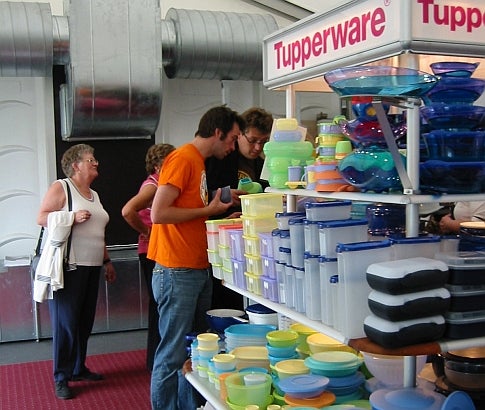Tupperware, a household name in the world of food storage, has sought the assistance of advisers to help turn around the company and prevent the possibility of shutting down.
The Orlando, Florida-based company has expressed concerns about its ability to continue operating as a “going concern,” prompting it to explore ways of improving its capital structure.
Tupperware’s announcement came in the form of a release dated April 7, where the company stated its intention to improve its capital structure in order to “remediate its doubts regarding its ability to continue as a going concern.”
The same day, Tupperware also issued a going-concern notice, cautioning that it may be heading towards default if its lenders demand payment for accessing the company’s primary line of credit.

The going-concern notice is a warning to investors that the company may not be able to continue operating in the near future. It is usually issued when there is doubt about the company’s ability to meet its financial obligations or continue operating without significant changes to its financial structure.
In this case, Tupperware is warning investors that it may not be able to continue as a going concern if it loses access to its line of credit.
According to the going-concern notice, “If such demand for repayment were to occur, the Company does not have the financial resources to repay such obligations. The Company is also dependent upon its [line of credit] to fund its operations and satisfy obligations.”
Tupperware’s reliance on its line of credit means that losing access to it would significantly impact the company’s ability to operate. The company has stated that it is seeking to improve its capital structure, which may involve negotiating with its lenders to extend the terms of its line of credit or exploring alternative sources of funding.
Tupperware Struggles to Stay Afloat
Tupperware’s financial struggles are not new. The company has been grappling with declining sales and mounting debt for several years. In 2018, Tupperware’s CEO, Tricia Stitzel, announced a turnaround plan to revitalize the company’s fortunes.
The plan included reducing costs, expanding into new markets, and investing in digital technology. However, the plan has not yielded the desired results, and the company’s financial position has continued to deteriorate.
Tupperware experienced a surge in demand for its products, as people stockpiled food and looked for ways to keep it fresh for longer. However, the company’s fortunes have since waned, and it has struggled to maintain sales momentum.
Tupperware’s financial difficulties have raised questions about the future of the company. The company was founded in the 1940s by Earl Tupper, an American entrepreneur who invented the airtight containers that made the brand famous. Tupperware became a household name in the 1950s and 60s, as housewives across America discovered the convenience of its products.

In recent years, Tupperware has faced stiff competition from rival brands and changing consumer habits. The rise of online shopping has made it easier for consumers to compare prices and shop around, making it more difficult for Tupperware to maintain its market share.
Following Tupperware’s announcement, its shares experienced a significant drop to below $2 on Monday. This is a significant decrease from its value a decade ago, which was around $100 per share. Despite still generating more than $1 billion in quarterly global sales, Tupperware suffered a $28.4 million loss in its most recent quarter due to higher costs, inflationary pressures, and lower sales.
To address these challenges and regain its financial footing, Tupperware is exploring various options, including seeking new lines of credit, finding new investors, selling some of its real estate, and further cutting costs.
In an April 7 statement, Miguel Fernandez, Tupperware Brands’ President and CEO, emphasized the company’s efforts to address its capital and liquidity position, stating that Tupperware is taking immediate action to seek additional financing and mitigate the impacts of recent events.
Fernandez added that the company is committed to turning its operations around and is exploring all options to achieve this goal.












